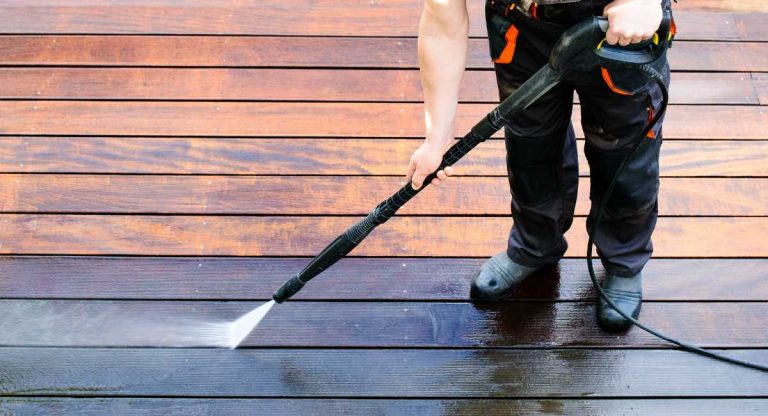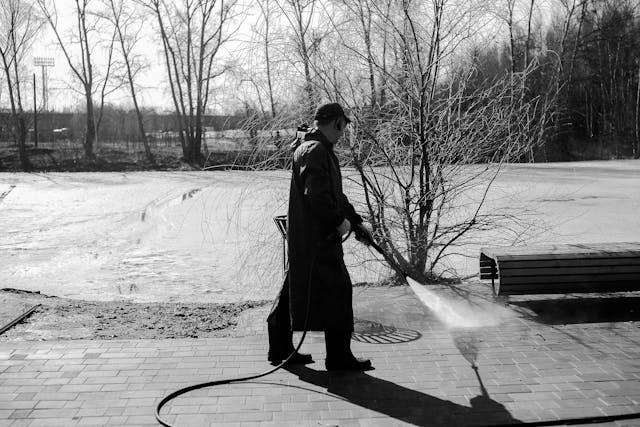
Hiring a professional power washing service should leave you with sparkling surfaces and a stress-free experience. But what happens if something goes wrong? 🧼😬
From damaged siding and cracked windows to unsatisfactory results or unexpected charges, disputes can happen — even with reputable companies. The good news is, there are ways to resolve issues professionally and effectively, while protecting your home and your wallet.
Here’s your step-by-step guide to handling disputes or property damage after a power washing job. 🛠️
🕵️ Step 1: Assess the Issue Immediately
Once the job is done, walk around your property and inspect all the areas that were serviced:
- Is there visible damage (e.g., chipped paint, broken light fixtures, cracked windows)?
- Do certain areas look patchy or poorly cleaned?
- Were areas you agreed to clean missed entirely?
Take detailed notes and photographs from multiple angles — ideally on the same day. This documentation will be crucial if you need to file a complaint or request a fix. 📸
📞 Step 2: Contact the Company Right Away
If something looks off, don’t wait. Reach out to the power washing company within 24–48 hours.
Use these tips for productive communication:
- Be polite but firm
- Reference the original contract or quote
- Share your photos and specific concerns
- Ask to speak to a manager or owner if needed
Most companies will offer to return and redo the area, fix minor damage, or even issue a partial refund — especially if the issue was caused by crew error. 🤝
🧾 Step 3: Check Your Paperwork
Before pushing forward with a complaint, review what you signed or agreed to:
- Did the contract include a satisfaction guarantee?
- Was the damaged area excluded from service?
- Was there a waiver of liability for older surfaces?
Some surfaces (like cracked stucco, loose paint, or untreated wood) are fragile and may have been excluded in your agreement. Still, most reputable companies take care not to cause additional damage and will help you resolve any issue fairly.
📌 Tip: If you didn’t receive a written estimate or contract, this is a good reminder to always get service terms in writing next time.
🔍 Step 4: Determine the Type and Extent of Damage
Not all issues are equal. Classify your concern to guide your next steps:
💧 Cosmetic Issue
- Streaks, patchy cleaning, or leftover residue
- Usually resolved with a re-clean or touch-up
💔 Minor Damage
- Loose paint, dented siding, or surface scratches
- May require contractor to fix or offer partial refund
🚨 Major Damage
- Broken windows, damaged HVAC units, electrical issues
- Likely requires a formal claim or repair estimate
The severity of the issue determines whether it’s a simple service call or a potential insurance situation.
📜 Step 5: Request Proof of Insurance (If Necessary)
If the damage is serious (e.g., broken fixtures, water inside walls), ask the company for:
- A copy of their general liability insurance
- A contact person for their claims department
- Any specific procedures for filing a claim
This insurance is meant to protect both the company and you as the client. If they’re properly insured, you won’t have to foot the bill for repair costs — their policy will cover it. 🧾🛡️
If the company refuses to cooperate or cannot provide proof of coverage, that’s a red flag — and you may need to escalate your complaint (see Step 7).
🛠️ Step 6: Get Repair Estimates (If Needed)
If something on your property was damaged, especially something expensive like:
- Wood decking
- Roof shingles
- Electrical components
- Decorative features
…you should contact a repair professional for a quote. Then, send this estimate to the power washing company as part of your resolution request. Make it clear you’re seeking reimbursement or coverage through their insurance.
📢 Step 7: Escalate if Necessary
If the company is unresponsive, dismissive, or flat-out refuses to help, it’s time to escalate:
- Leave a detailed and honest review online (Google, Yelp, BBB)
- File a complaint with your local consumer protection office
- Report them to the Better Business Bureau
- Contact your homeowner’s insurance for advice on next steps
Most businesses want to avoid negative publicity or formal investigations and may respond quickly once reviews or complaints appear. 📣
💡 How to Prevent Issues in the Future
Even though problems are rare, you can prevent disputes by:
- Hiring licensed and insured professionals
- Getting a detailed, written quote upfront
- Discussing fragile areas or exclusions before work begins
- Being present for the job (or doing a post-service walkthrough)
- Documenting your property’s condition before and after service
A little extra due diligence goes a long way. 🧠✅
✅ Final Thoughts
Mistakes happen — even with professional power washing companies. But how they respond to those mistakes makes all the difference.
Most companies want happy customers and will make things right if approached with professionalism and clear communication.
By acting quickly, keeping calm, and documenting everything, you can resolve disputes fairly — and still enjoy the fresh, clean results you were aiming for. 💦🧽
Browse Amazon Here For Soft Washing Equipment And Accessories






